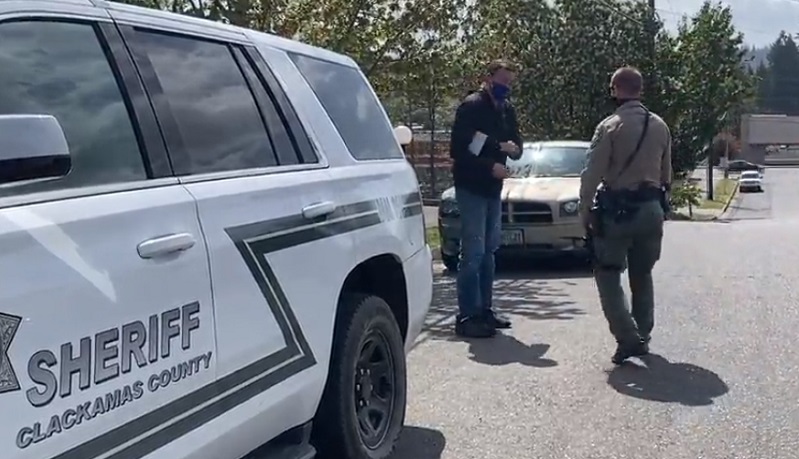CLACKAMAS, Ore. (KOIN) — 911 is the number we know to call when we’re in danger. But who do you call if you see someone in crisis? Law enforcement officials say they know they’re not always the best response for every call, especially when someone is in a mental health crisis.
The Clackamas County Sheriff’s Office said a lot of the calls they respond to have a mental health component. So they decided to take a different approach to help someone in crisis.
Both Multnomah and Clackamas counties have 24-hour crisis phone lines staffed with teams of behavioral health clinicians trained to meet with people. But a lot of those calls that should go to the crisis line still end up with law enforcement.
“A deputy could find that person, show up, take them to jail for criminal mischief, but is that really the best solution?” said Sgt. Marcus Mendoza with the Clackamas County Sheriff’s Office.
Knowing it’s not always the best solution, they partnered with the Clackamas Behavioral Health Division to bring two mental health clinicians into the sheriff’s office full time.
“We work primarily on street corners, buildings, homes, we go to a lot of people’s homes and just getting out to where people are so that we can help resolve the crisis as fast as possible,” said Stacy England, the Behaviorial Health Division program supervisor.
“If police are getting a call and family want the police there or they’re kind of hesitant about having police, police can access us,” said one of the clinicians, Stephen O’Sullivan.
He and another clinician work with the sheriff’s office 7 days a week and go out on calls with deputies when someone is having a mental health crisis. They’re also able to connect people with services like housing and treatment, and follow up with the person after the fact.

“Law enforcement has a limited set of tools they can use and we have all the community resources,” England said. “So the mission of our team is to prevent unnecessary incarcerations and hospitalizations and to help people stabilize in their communities and use, build support around them when they need it.”
She said the partnership has made a huge difference in how these type of cases are handled.
“For the most part when we arrive on scene, you know, officers are inviting us onto their scene and they’re very relieved when we arrive because they know that we’ll step in and try and help de-escalate that situation and they can go back to managing the safety,” she said.
“They’re really able to connect with people that have mental health issues and offer them a level of service that we couldn’t do ourselves as deputies,” Mendoza said.
The partnership began more than a decade ago. Mendoza said the need for it has grown.
“The call load isn’t getting any lower so we can always use more help.”
On average, the clinicians are called to assist deputies two to four times a day in person, and about 5 times a day by phone, plus they follow up with people in crisis after the initial contact.
“The officers call us a lot because they’re concerned about the person and they just feel uncomfortable leaving because here we have a person who may be houseless, is in a mental health emergency, and they don’t want to leave that person on the street, they want to see that person get better,” England said.
Both deputies and clinicians told KOIN 6 News this partnership has led to better outcomes for people in crisis, especially in cases where someone doesn’t trust the police.
“A lot of times the family members will voice their fears and their concerns about what could’ve happened versus how things turned out,” O’Sullivan said.
“We’re coming in with just a very different perspective and a background in mental health,” said England.
That perspective is in high demand.
Mental Health America ranks Oregon near the bottom when it comes to access to mental health care. Programs like this aim to change that.
“The need for our services is very high and we’re actually hoping to be able to continue to expand our team,” she said. “We keep very busy and I think we can keep getting busier.”
Clinicians are available to assist deputies around-the-clock, but the team embedded with the sheriff’s office only works until 7 p.m.
After that, deputies have to call the crisis line for help. Officials are talking about adding an overnight team, as well.
The two clinicians embedded with the sheriff’s office are also called on occasion to assist the Oregon State Police and the police departments of Sandy, Milwaukie and Canby on mental health calls.